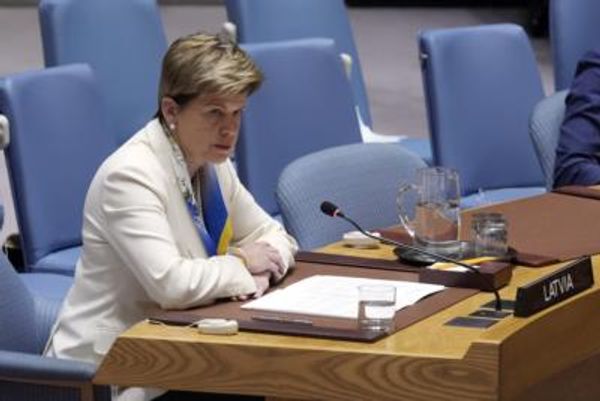A mayoral candidate in Adelaide's suburbs who is looking to reduce public exposure to chemical weed killers in green spaces has put forward a left-field alternative: using goats instead.
Former child protection minister Rachel Sanderson, who is now running for the role of mayor of Prospect, made the pitch as part of her campaign.
The City of Prospect will tonight consider a motion by current councillor Kristina Barnett to investigate steam methods as an environmentally friendly alternative to potentially toxic chemicals.
But Ms Sanderson said if the cost of that option were deemed prohibitive, goats could be used to keep weeds under control in playgrounds and dog parks.
"Back in 2018, I wrote to council about the dangerous use of glyphosate and nothing at all has happened since that time," Ms Sanderson said.
"The Port Adelaide-Enfield Council, for seven years, has been using steam technology which is also available, and so I would ask that they [Prospect] look into that, and if that is too expensive, then the other options would be hand-weeding or to use goats.
"They're non-toxic, they're generally friendly; children love patting the goats at the Royal Show each year."
But the idea has been rejected by Ms Barnett who, while sharing Ms Sanderson's concerns about chemicals, questioned the practicality of using goats rather than existing steam methods.
"I don't want my motion trivialised, which appears to now be happening — I think it deserves a serious response," she said.
"In a playground we would have trouble with the goat's droppings, and I don't know if one ties a bag around its rear end and captures its compost.
"What if a goat butted somebody and hurt a child? [There are] all these sorts of questions."
In a statement, the City of Prospect said it aimed to "minimise the use of herbicides wherever possible".
"Despite ongoing investigation, a viable alternative to herbicides has not yet been found that would be either cost effective or efficient," it said.
The council said weed spraying at playgrounds occurred "between 7:30am [and] 8:30am to avoid peak usage times", and only if there were no members of the public on site.
"At present, glyphosate is approved by the Australian Pesticides and Veterinary Medicines Authority, which has deemed that councils can continue to use it safely in accordance with label directions," the council said.
But Ms Sanderson says the science about whether glyphosate is a carcinogen remains contested, and that it is "always best to not use poisons", especially around children.







